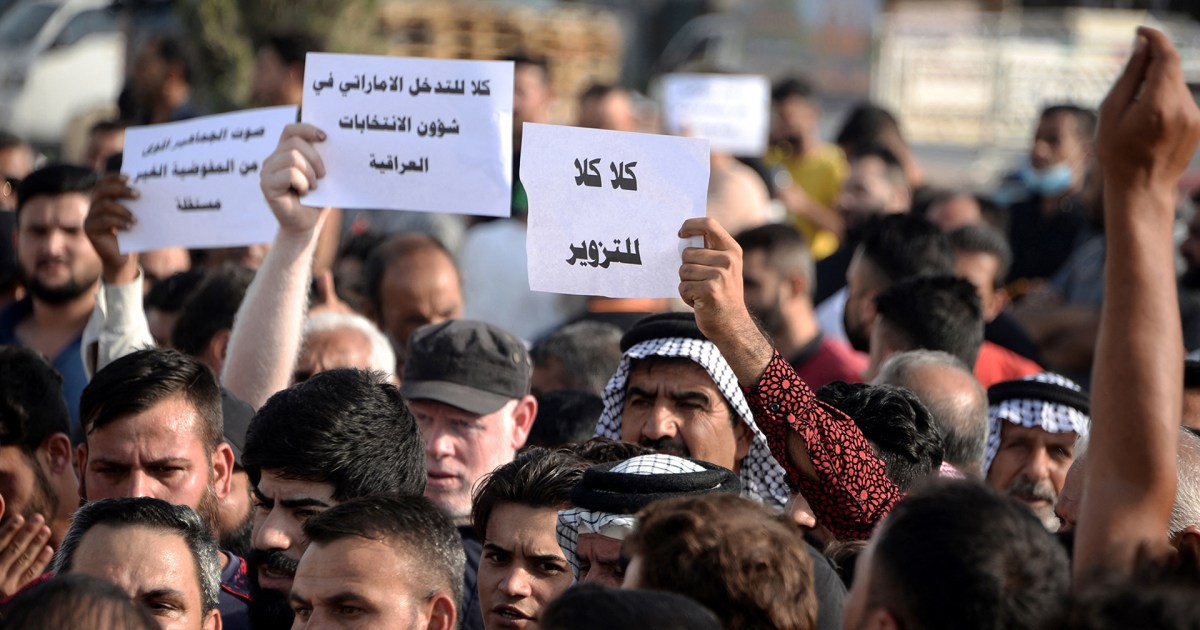A member of the media team at the Election Commission in Iraq, Imad Jamil, denied the news that all appeals against the preliminary results of the legislative elections that were announced last Saturday were rejected, while security forces deployed in the capital, Baghdad, after demonstrations took place in protest against the election results.
Jamil said in a statement to Al-Jazeera, that "the process of receiving appeals is still continuing, and that the Commission has so far received more than 1,300 appeals from all Iraqi provinces."
In a related context, security forces deployed heavily in the vicinity of the Green Zone in the center of the capital, Baghdad, after dozens of protesters protested against the preliminary results of the parliamentary elections.
A Baghdad police officer said, preferring not to be named, that "the forces of order and the Special Division (affiliated with the army) have been deployed in the vicinity of the Green Zone."
He explained in statements to Anadolu Agency that the spread comes with the arrival of dozens of demonstrators protesting against the election results to one of the gates of the Green Zone, stressing that the authorities fear that the demonstrators will storm the area.
Political forces and influential Shiite factions reject the preliminary results of the early parliamentary elections on the grounds that they were fabricated and manipulated, demanding a manual recount of the votes.
A few days ago, these parties have mobilized their supporters, to express their protest against the results, after losing many of their seats in the next parliament.
Respect the results
Iraqi President Barham Salih had stressed that respecting the will of the people, the constitutional process and the peaceful path in Iraq is a national duty.
The Iraqi president called for objections to the latest results to be made within the legal and peaceful context, without compromising public security.
Salih said that "there is an urgent need to unify the national ranks and advance the country's supreme interests and the aspirations of the Iraqi people."
Over the past two days, Baghdad and other provinces in the south of the country have witnessed sporadic protests by supporters of the forces and factions objecting to the election results.
According to the preliminary results, the "Sadr bloc" affiliated with Shiite leader Muqtada al-Sadr came first with 73 seats out of 329, while the "Progress" bloc led by dissolved Parliament Speaker Muhammad al-Halbousi (Sunni) won 38 seats, and the "State of Law" bloc ranked third. led by former Prime Minister Nuri al-Maliki, with 34 seats.
The "Al-Fateh" alliance, a political umbrella for the armed factions, is the most prominent loser in the recent elections, with 16 seats, after it came second with 48 seats in the 2018 elections.

